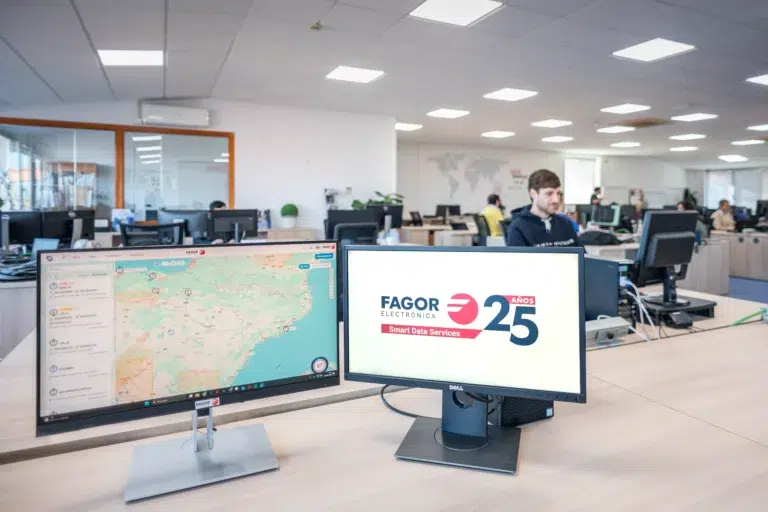Fleet management is key to the passenger transport sector, helping to improve efficiency, reduce costs and ensure the safety of passengers and drivers. The main benefits of fleet management in this sector are detailed below.
- Monitoring driver behaviour
Fleet management systems can monitor driver behaviour, such as speed, sudden braking and acceleration, which helps improve safety and reduce accident risks.
- Reduced operating, failure and maintenance costs
Real-time vehicle monitoring and preventive maintenance scheduling help reduce mechanical failures and repair costs, ensuring that vehicles are always in good working order.
- Monitoring vehicle use: kilometres and driving times
The monitoring of kilometres travelled and driving times makes it possible to control the proper use of vehicles and ensure compliance with rest regulations for drivers.
- Professional driver communication and route dispatching
Fleet management enables constant and efficient communication with drivers, sending updated routes and providing clear instructions to improve operability and customer service.
- Improved job allocation
Advanced systems optimise job and route allocation, ensuring that drivers are assigned the most efficient tasks based on location and schedules, improving productivity.
- Remote downloading and centralised storage of tachograph and driver card files
Remote downloading of tachograph and driver card files facilitates the management of driving and rest time regulations, reducing the administrative burden and improving accuracy.
- Drivers’ driving and rest times
Monitoring of driving and rest times ensures that drivers comply with current legislation, preventing fatigue and improving road safety.
- File interpretation and infringement analysis
Interpretation of tachograph data and infringement analysis enables the detection of irregular or dangerous behaviour, which helps to implement corrective measures and improve driver performance.
- Monitoring fuel consumption and refuelling
Monitoring fuel consumption and refuelling helps to optimise fuel expenditure, reducing operating costs and contributing to sustainability.
- Permanent geolocation of assets
Geolocation allows real-time tracking of vehicle location, improving route efficiency and passenger safety.
- Management of timetables, stops and transit points
Efficient management of schedules and stops ensures that vehicles arrive at their destinations on time, improving the passenger experience and the punctuality of the service.
- Control of vehicle servicing and maintenance through alerts and reporting
Fleet management enables preventive maintenance to be scheduled and detailed monitoring of vehicle condition, preventing breakdowns and ensuring safety on every journey.
- Vehicle cost control: maintenance, breakdowns, etc.
The system helps to control the costs associated with maintenance, breakdowns and other incidents, allowing companies to better manage their resources and optimise their expenses.
- Vehicle, driver and cargo safety
The use of security technologies, such as cameras and sensors, ensures the protection of vehicles, drivers and passengers, minimising risks and improving confidence in the service.
- Vehicle theft management
Geolocation and remote immobilisation enable efficient management of vehicle theft, facilitating recovery and protecting company assets.
- Vehicle immobilisation
Remote immobilisation of vehicles in the event of theft or unauthorised use ensures security and prevents vehicle misuse.
- Alarms and emergency events
Alarms and emergency monitoring systems enable rapid response to incidents, improving the safety of both passengers and drivers.
- Breathalyser
In-vehicle breathalysers ensure that drivers do not operate under the influence of alcohol, ensuring passenger safety and compliance with traffic regulations.
- Passenger counting
Automatic passenger counting helps manage vehicle capacity and improve route planning, ensuring that vehicles do not exceed their capacity and providing a safer and more comfortable experience.
- Surveillance cameras
Surveillance cameras inside vehicles and in key areas contribute to passenger safety and the monitoring of incidents during the journey.
Conclusion
Fleet management in the passenger sector optimises operational costs, improves safety and increases efficiency. With tools such as geolocation, driving time control, fuel consumption monitoring and infringement analysis, companies can offer a safer, more efficient and higher quality service, benefiting both passengers and drivers.



